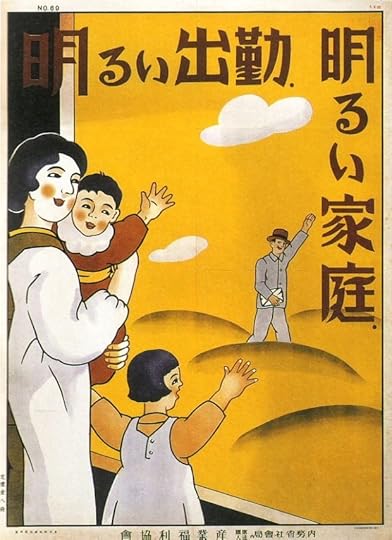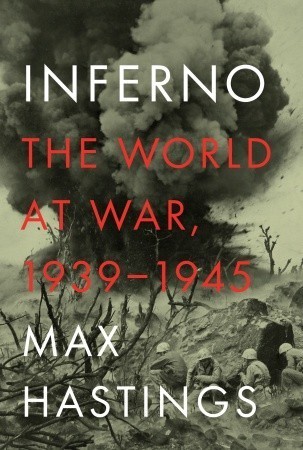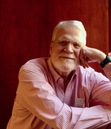Mark Scott Smith's Blog: Enemy in the Mirror, page 105
January 28, 2016
Leningrad & the 7th Symphony -1942
In the summer of 1941, shortly after the German army began the long siege of his city Leningrad, the Soviet Russian composer Dmitri Shostakovich began work on his Seventh Symphony.
After composing several movements, Shostakovich and his family, along with the Leningrad Philharmonic Orchestra, were evacuated. The city of Leningrad then endured a terrible 900-day siege that resulted in starvation and death of half a million civilians.
Upon completion, the Seventh Symphony was performed in Moscow, London, and New York City, but not Leningrad where most remaining musicians had fled or perished.
Heroically, an orchestra was assembled in Leningrad and the symphony’s score was flown in over German lines. Suffering from hunger and exposure (three musicians reportedly died during this time), the makeshift orchestra doggedly rehearsed the symphony.
Shostakovich’s Seventh Symphony was performed in Leningrad on August 9, 1942, a date on which Hitler had predicted the fall of the city.
Read more:
Interview: Brian Moynahan, Author Of ‘Leningrad: Siege And Symphony’ : NPR
Notes on ShostakovichSymphony No. 7
The post Leningrad & the 7th Symphony -1942 appeared first on Enemy in the Mirror.
January 25, 2016
Wünschkonzert – Request Concert 1942
During WWII German radio hosted the Wünschkonzert für die Wehrmacht, playing music requested by German soldiers.
The 1940 motion picture Wünschkonzert , seen by over 20 milllion viewers, used a blend of fiction, newsreel and documentary footage to tell the classic story of lovers separated during wartime. The Plot: A Luftwaffe pilot returning from a secret mission with the Condor Legion in the Spanish Civil War is unable to find the beloved he’d met in the 1936 Berlin Olympics. Three years later, now serving in the Luftwaffe during WWII, he sends a message to the Wünschkonzert program requesting the Olympic anthem be played for her. After hearing it, she finds him again and they are reunited.
The film, produced by Ufa-Film Gbmh (Ufi), Germany’ state-production film company, was reportedly inspired by Propaganda Minister Joseph Goebbels. Film footage includes Adolf Hitler arriving at the Olympic Games, Spanish Civil War newsreels, and a montage of soldiers listening to the Wünschkonzert. Musical interludes featured popular German stars Marika Rökk, Paul Hörbiger, and Heinz Rühmann.
The post Wünschkonzert – Request Concert 1942 appeared first on Enemy in the Mirror.
January 21, 2016
Racism in WWII America

Racism was firmly rooted in WWII America.
Japanese-American citizens living on the West Coast were detained
Acceptance of European Jews fleeing the Nazis was strongly resisted
Racial discrimination against blacks and Hispanics was common
Although American blacks served in their country’s military, their units were segregated and their duties more often than not menial
While military operations in the Pacific War were fought on a smaller scale than in the European theater, visceral hatred of the enemy, ferocity of fighting and atrocities committed appeared to have been much greater in the Pacific
The post Racism in WWII America appeared first on Enemy in the Mirror.
January 18, 2016
Welfare in WWII Japan

A happy worker makes a happy home – Labor Welfare Association 1932
Beginning in the 1920s, the Imperial Japanese government enacted a series of welfare programs, based mainly on European models, to provide medical care and financial support.
After the onset of the Second Sino-Japanese War in 1938, the Ministry of Health and Welfare was created with special emphasis on children and younger citizens in response to needs for a physically and mentally fit population capable of successful warfare.
During the Pacific War the Imperial Japanese government expanded health care to the entire nation and introduced various pension plans. Unfortunately, Japanese wartime welfare work neglected individuals such as the elderly, mentally-ill and disabled who did not constitute valuable human resources for military-industrial mobilization.
The post Welfare in WWII Japan appeared first on Enemy in the Mirror.
January 14, 2016
German Welfare – Winterhilfswerk

The National Socialist People’s Welfare Organization (Nationalsozialistische Volkswohlfahrt) conducted an annual winter drive (Winterhilfswerk) with the slogan “None shall starve nor freeze.” Although the program was established before the Nazi’s rise to power, Hitler claimed credit for the program.
Providing food, clothing, coal, and other items to economically disadvantaged Germans, the program ran from from October through March until the end of the war. Similar initiatives were started in other countries in German-occupied Europe.
The post German Welfare – Winterhilfswerk appeared first on Enemy in the Mirror.
January 11, 2016
All the Light We Cannot See

This superbly written, often lyrical, WWII novel about a blind French girl and a young German soldier is excellent reading.
“I have been feeling very clearheaded lately and what I want to write about today is the sea. It contains so many colors. Silver at dawn, green at noon, dark blue in the evening. Sometimes it looks almost red. Or it will turn the color of old coins. Right now the shadows of clouds are dragging across it, and patches of sunlight are touching down everywhere. White strings of gulls drag over it like beads.”
Read the NY Times review.
The post All the Light We Cannot See appeared first on Enemy in the Mirror.
January 7, 2016
Short Snorter

A short snorter is a bank note signed by flyers traveling together. When later challenged, the recipient is required to produce the short snorter or buy the challenger a drink. The tradition, believed to have originated with Alaskan bush pilots in the 1920s, was popular among American military flyers during World War II.
The post Short Snorter appeared first on Enemy in the Mirror.
January 4, 2016
INFERNO – 1939-1945

I am currently reading this excellent book by Max Hastings. Not only is it detailed, balanced and well-referenced; it is superb writing.
Before dawn next morning, “a warm, damp, rather hazy day,” American and Japanese pilots breakfasted. The Yorktown’s men favoured “one-eyed sandwiches” – an egg fried in a hole in toast. Naguno’s fliers enjoyed rice, soybean soup, pickles and dried chestnuts before drinking a battle toast of hot sake. At 4:30 a.m. seventy-two Japanese bombers and thirty-six fighters took off to attack Midway Island…
The post INFERNO – 1939-1945 appeared first on Enemy in the Mirror.
December 31, 2015
Japanese New Year – 正月
At midnight on December 31, bells in Japan’s Buddhist temples ring 108 times to symbolize 108 human sins and remove 108 worldly desires.
At the Japanese New Year (正月) a special selection of dishes is prepared. Called osechi-ryōri (御節料理) these dishes consist of boiled seaweed, fish cakes, sweet potato with chestnut, burdock root, soybeans and rice cakes.
Similar to the Western custom of sending Christmas cards, the Japanese send New Year’s Day cards (年賀状) to their friends and relatives.
The post Japanese New Year – 正月 appeared first on Enemy in the Mirror.
December 28, 2015
Christmas – WWII Germany
The post Christmas – WWII Germany appeared first on Enemy in the Mirror.
Enemy in the Mirror
I began by posting events around the turn This website www.enemyinmirror.com explores the consciousness, diplomacy, emotion, prejudice and psychology of 20th Century America and her enemies in wartime.
I began by posting events around the turn of the 20th century as I was researching my first novel about the Pacific War. I continued through WWII for my second novel about the Battle of the Atlantic. Now I am beginning to look at the Cold War as I gather information for my next novel about the Korean War. ...more
- Mark Scott Smith's profile
- 7 followers



